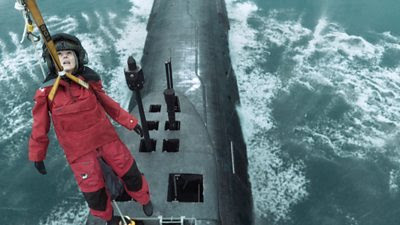It’s immensely satisfying when things live entirely up to expectations.
There was a figure in the middle of the twentieth century who was destined to have what I think of as firework fame. For a relatively short time, he enjoyed a great and widespread reputation. But since his death, he’s faded from sight and today few, I imagine, even know his name.
He was the journalist and writer Claud Cockburn. I once read his autobiography, which had a beguiling title based on a novel by another of those writers now fading into obscurity, Robert Graves. The Graves novel was I, Claudius and Cockburn’s autobiography was I, Claud.
He talks at one point of the intense satisfaction of experiences that fulfil expectations. In his case, it was an interview with the larger-than-life mobster Al Capone (a name unlikely to fade from general consciousness anytime soon). When Cockburn was allowed in to interview him, a door to the room was kept ajar and behind it he could just make out the figure of a man carrying a sub-machinegun.
Perfect, right?
Of course, living up to expectations can also be another way of saying conforming to stereotype. Have you read Daniel Kahneman’s extraordinary book, Thinking, Fast and Slow? It’s a brilliant and surprisingly readable account of human psychology and, above all, of the biases that guide our instinctive thought (that’s the ‘thinking fast’ bit, where careful rational analysis is slow).
His attitude towards stereotyping is, in his words, neutral. When we lack information, stereotyping can help us make judgements, even if there’s a good chance they might be wrong. The tall, wiry athlete is more likely to be a basketball player than a rower, and until we’re able to get more information, that may be a reasonably good working assumption to make.
On the other hand, to take one of his examples, although someone with a doctorate is more likely to subscribe to the New York Times than someone without a university degree, that doesn’t mean that the person reading the New York Times opposite you in the New York subway is more likely to have a PhD than to be a non-graduate. There are so many more non-graduates than holders of PhDs that it is immensely more likely that the person will not hold a degree.
The failure to take into account how many more non-graduates there are is known as the base rate fallacy. It’s where we fail to consider the numbers of people in the two categories of people, independently of whether they happen to be reading the New York Times at any particular moment. Where one of the groups is hugely larger than the other, it’s simply far more likely that an individual belongs to it, whatever their reading habits.
None of this matters much when we’re talking about basketball players or New York Times readers. It becomes a lot more toxic when we’re applying this kind of stereotyping to, say, blacks, or gays, or women, and trying to decide what they’re likely to do, or may already have done, from the category to which they belong.
Fortunately, my most recent stereotyping experience was much more successful and much less fraught.
I caught sight of a man in a group of people with whom we were having lunch. I turned to Danielle to say, “wow! He could be a French artist from the nineteenth century.”
 |
| Stereotypically a 19th-century French painter |
“Excuse me,” I said to him, “are you by any chance a French painter?”
He laughed.
“No, a Spanish painter.”
I was delighted to have got that close to the truth. A fine illustration of a Kahneman principle. Stereotypes can be innocent. And even accurate.
You just have to learn not to avoid the ones that are wrong and malignant.


















